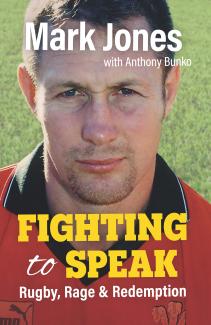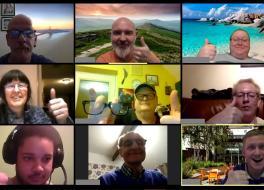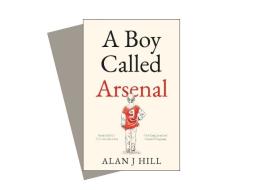
Book review: Fighting To Speak

Jack Nicholas from our volunteer review team gives his opinion on the book 'Fighting To Speak: Rugby, Rage & Redemption, by Mark Jones.
STAMMA members might remember rugby player Mark Jones as one of the interviewees in the 2021 BBC documentary I Can't Say My Name. Talking to journalist Felicity Baker, he appears a quiet, even shy man speaking with confidence about the impact stammering had on his life.
In his fascinating autobiography 'Fighting To Speak', however, we learn that there were very different sides to Jones. For much of his life, he regarded his stammer as a demon (a word he uses throughout) that he was forever fighting, usually losing. The opening page is characteristically and fiercely direct:
"Having a stammer has firmly gripped every part of my life. It has owned me... It has influenced my every action, my every feeling… There hasn't been a day that has passed where it hasn't affected the way I've behaved, the way I've felt, the way I've conducted myself. It has led to a rollercoaster ride through the dark emotions of self-loathing, hatred, anger, and endless insecurities. It has shaped everything I've ever done."
Jones has stammered since childhood, but believes that repeated concussion received playing rugby at the highest levels for twenty years or more affected it. Six foot five inches of toned muscle, Mark Jones was fearless, an imposing figure always in the thick of — indeed often the instigator of — the action. Injuries were, in his view, occupational hazards.
This aggressive style of play was driven by his insecurities and his desire to prove himself despite his stammer:
"A fist in the face or a kick to the bollocks on a rugby field is nothing compared to the gut-wrenching pain stammerers experience every day of their lives."
Article continues below...

The hard man persona on the rugby field does not equate with the gentle generosity he shows to family and friends. But, as he explains, it is one of three personas that Jones developed as a way of protecting himself: there's the 'On The Field Mark' and 'After The Game Mark', which were created to protect and hide the real Mark's pain and distress; and the 'At Home Mark' which he describes as 'The Lost Soul'. Common to all three Marks was a fierce sense of justice and the obligation to stand up for himself and for others that was so necessary growing up on a council estate in South Wales in the 70s. Those were hard days. Money was tight. Employment was hard to find (especially for a stammerer). His family never wanted to talk about his speech. Mark became a punk and a rebel. Fiercely determined to succeed.
Success came on the rugby field but was, in many ways, a bitter triumph. On the one hand, his record is impressive: playing for top clubs, representing Wales in Rugby Union and League, and Great Britain in Rugby League. Against that, he was sent off six times, banned repeatedly for violent conduct and developed a reputation which he probably now regrets.
Everything changed during a match in October 1998 when a violent outburst made him re-evaluate his behaviour and agree to courses of anger management and speech therapy. His description of this event and its aftermath is disturbing and moving, and he explains how he painstakingly reshaped his life and his feelings about his stammer. He describes the speech therapy he had, which he credits as helping him become more confident, calmer and more relaxed with others about his stammer. He became able to show more of the 'At Home Mark', no longer hiding behind the 'On The Field Mark'.
This is a revealing autobiography, full of anecdotes often both sad and funny. Generous to others. Honest and hard on himself. It illustrates dramatically how feelings about stammering can influence behaviour and life choices. Mark used rugby as a physical release for real and perceived slights. He built up understandable but unhelpful ways of looking both at the world and his stammer, which he refers to negatively throughout most of the book — words like 'affliction', 'pain', 'embarrassment' and 'battle' appear repeatedly. But he had the courage to face his demons and rethink his life. The book ends with a lovely reflection of his changing views, with Jones being able to ask, does it really matter if he stammers?
What would he have been like as a player without the stammer? Would he not have achieved as much, or would he have been able to do so much more? We will never know. But this story remains a great account of how sport and stammering wrapped around each other and influenced every aspect of a proud and brave man's life.
Fighting To Speak: Rugby, Rage & Redemption, by Mark Jones with Anthony Bunko, is published by St David's Press and is available to buy now. You can read an article Mark has written especially for our Your Voice section.
Thank you to Jack Nicholas for reviewing this book. For more, go to Reviews.































